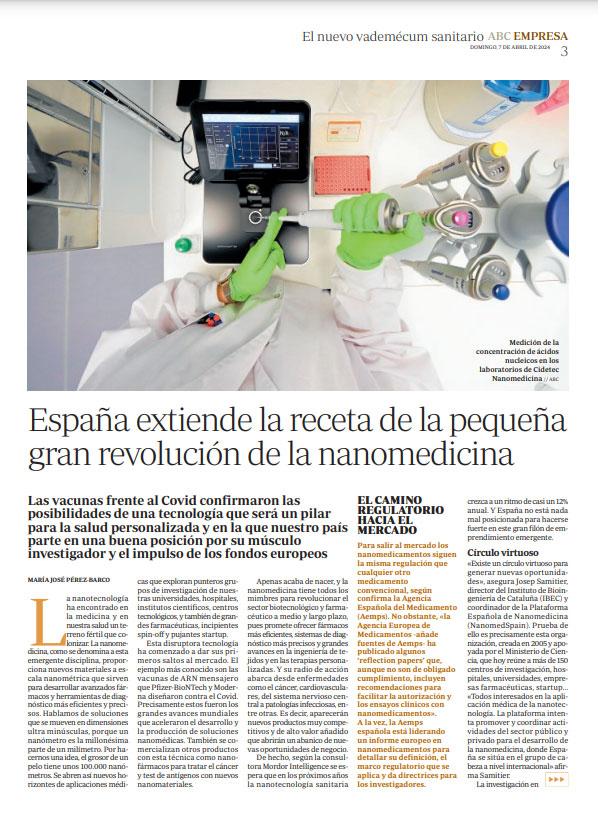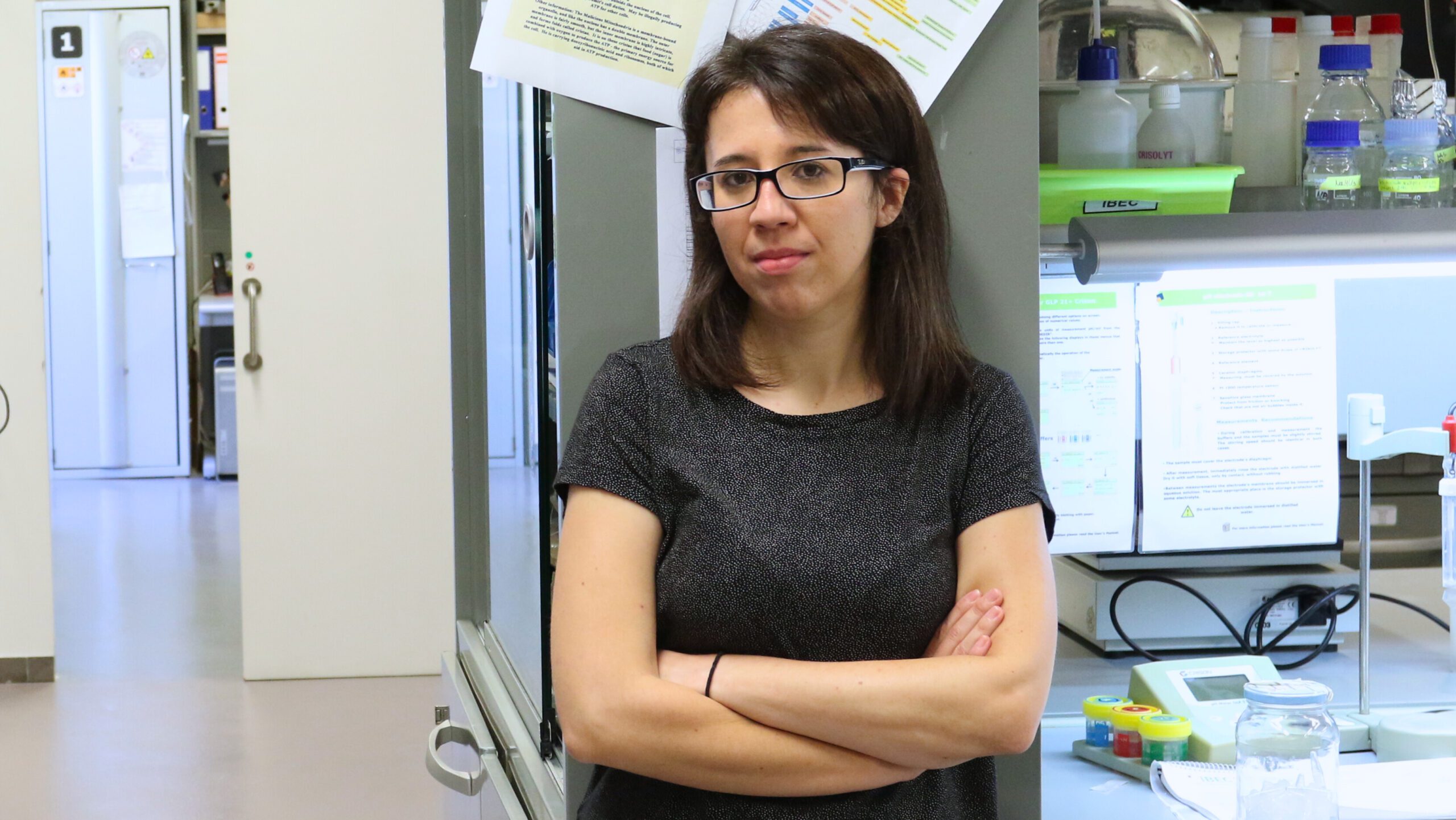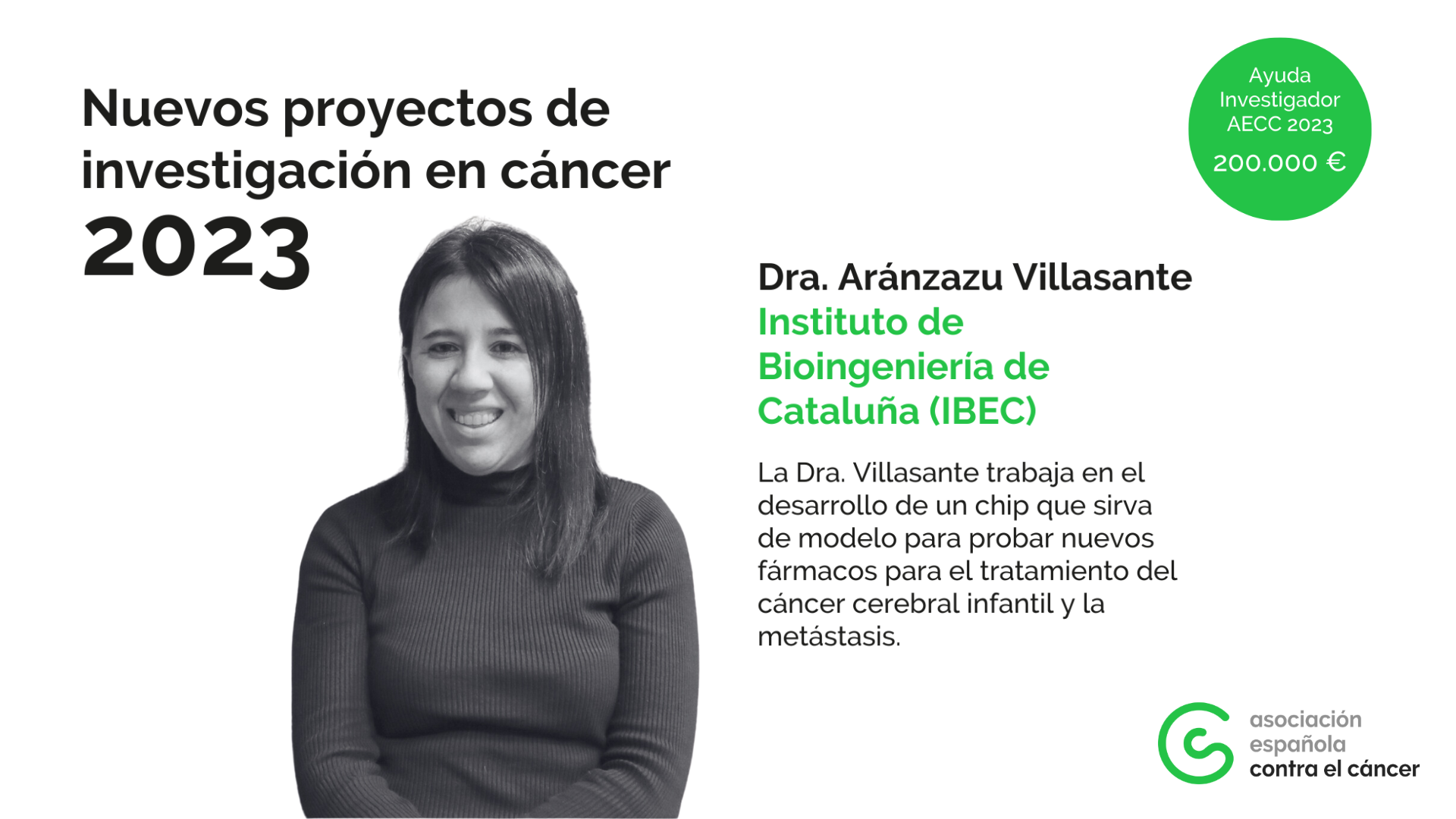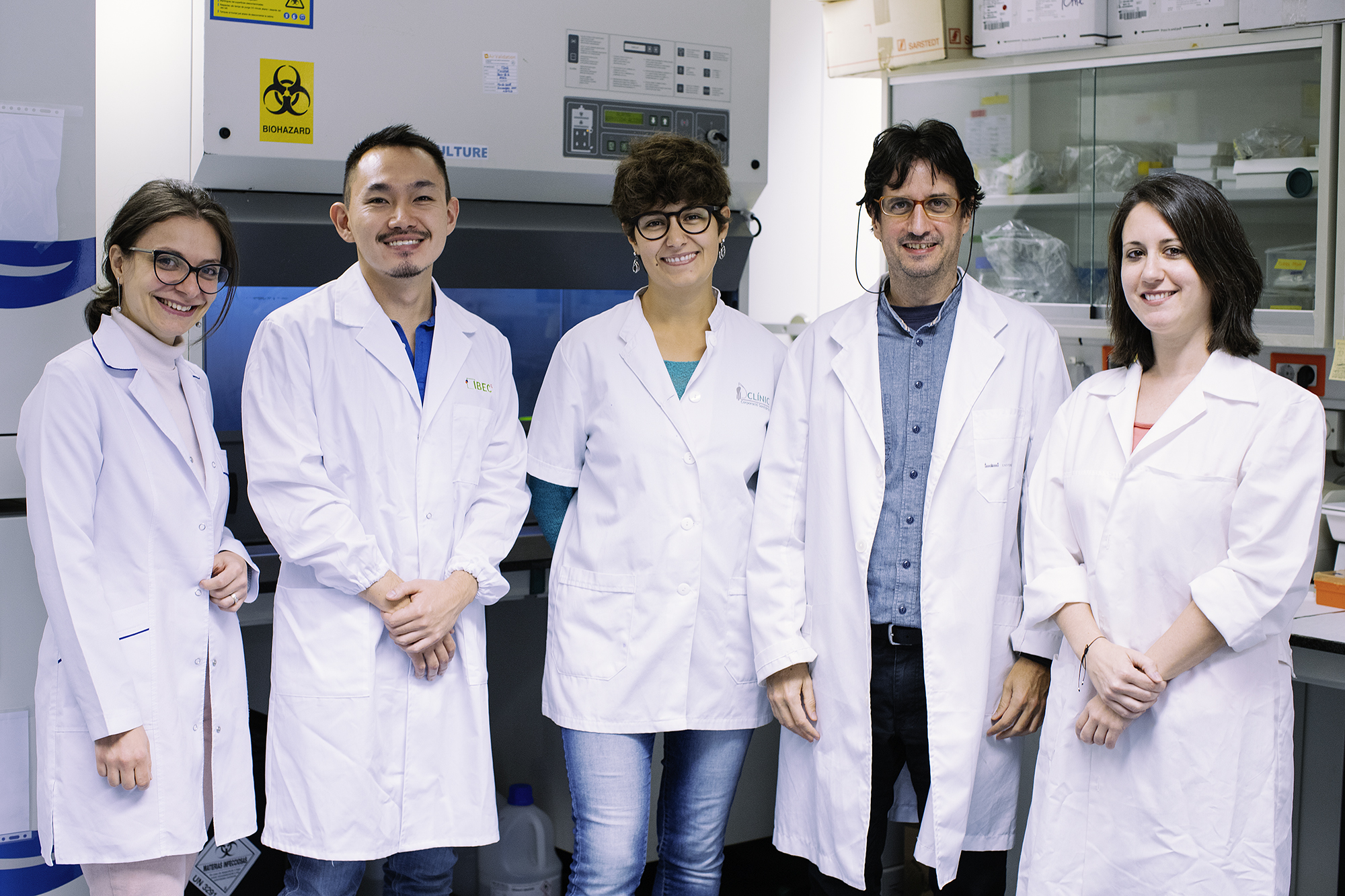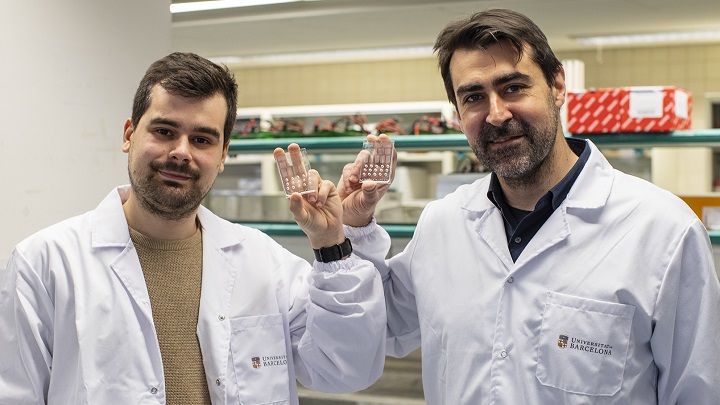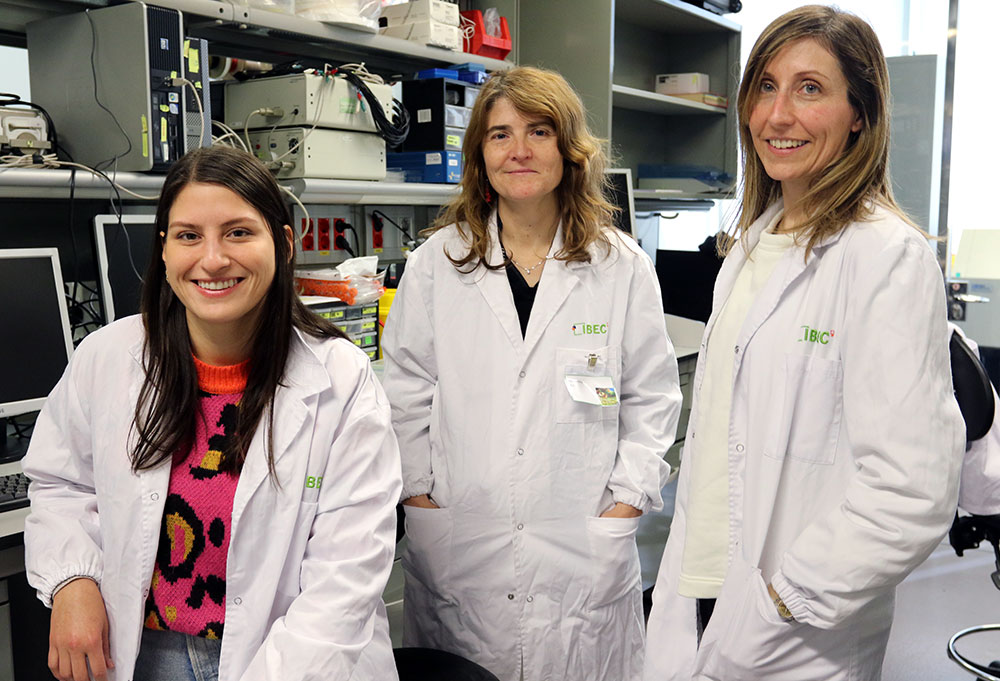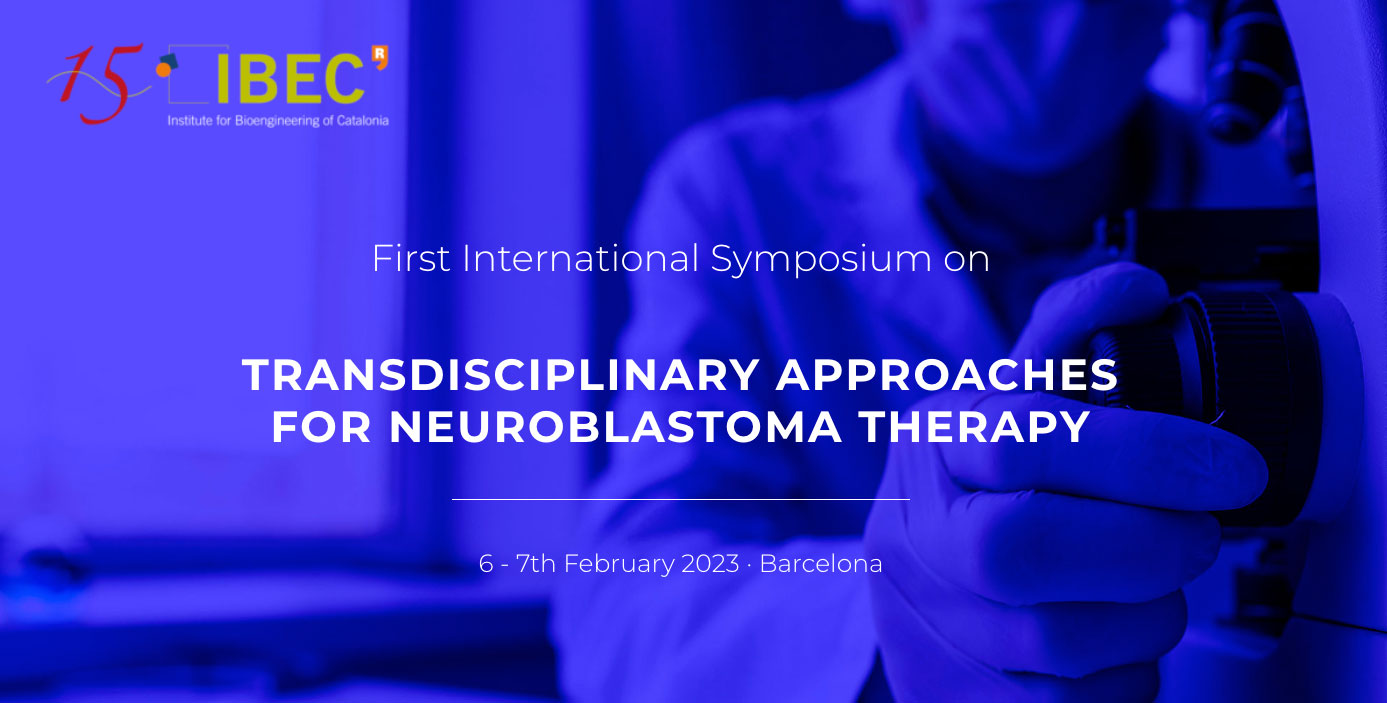Nanobioengineering
Group
A study led by IBEC successfully mimics the complex neuroblastoma vasculature on a chip to explore treatments for this pediatric cancer
Two studies led by IBEC have successfully mimicked the transdifferentiation process of the neuroblastoma vasculature in in vitro models. These models, one in 2D and the other on a microfluidic chip, provide platforms for identifying new biomarkers and designing effective therapies against this type of cancer.
Aránzazu Villasante receives a grant from the Spanish Association Against Cancer to study neuroblastoma
The project focuses on developing a chip that will serve as a model for testing new drugs to treat neuroblastoma, a childhood brain cancer. The research has received €200,000 in funding and is led by Aránzazu Villasante, Senior Researcher at IBEC.
Researchers identify new biomarkers of the most frequent lung cancer
Researchers from the IBEC and the University of Barcelona (UB) have identified new biomarkers for non-small cell lung cancer, the most common lung cancer. The results, published in the journal Modern … Read more
Researchers indentify new biomarkers of the most common lung cancer
TV3, Informatius
IBEC becomes the first research center in Spain to certify its laboratories as sustainable
IBEC’s Core Facilities and nine of its research groups have undergone the “green laboratory” certification process granted by the My Green Lab organization, all awarded with the highest levels of … Read more
Researchers design a microfluidics device to predict cancer therapy response
One of the great challenges in the fight against cancer is to design new technologies for a personalized treatment for each patient. Depending on the molecular characteristics —DNA mutations for instance— of each tumour, precision medicine aims to make it easier for cancer patients, both adult and paediatric, to receive a personalized treatment that is appropriate to their pathology. But is it possible to know whether or not a patient can benefit from a treatment before starting therapy?
A blood-brain barrier on a chip to study drugs against Alzheimer’s
A study led by the Institute of Bioengineering of Catalonia (IBEC) describes the development of an organ-on-a-chip that mimics the human blood-brain barrier. With this system, researchers can study the barrier permeability to different drugs and screen the most effective ones, avoiding animal tests. The device could also incorporate cells from patients to make a personalized study of the disease.
IBEC holds the first International Symposium on Neuroblastoma therapies
On February 6-7, the Institute for Bioengineering of Catalonia (IBEC) organized the first International Symposium on transdisciplinary approaches for Neuroblastoma therapy, an event that brought together more than a hundred … Read more


